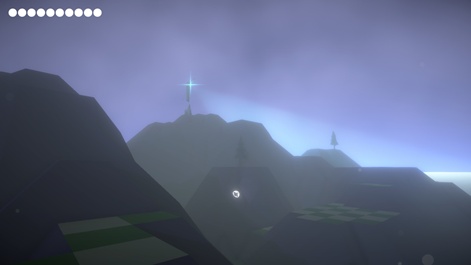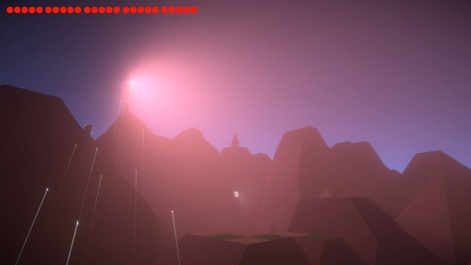This article was originally published on our sibling site PocketGamer.biz
The Welsh games industry is steadily growing to its own tune. Populated by a swathe of indies, it’s becoming more integrated and populated.
But the local sector is having to evolve following some high profile closures, including OysterWorld and Relentless Software. The former was backed by the Welsh government to the tune of £1m-plus to set up a studio in Treforest, Pontypridd
Three years later in 2016 the company went bust with debts of £2 million, resulting in 50 job losses.
Brighton's Relentless Software meanwhile also got government backing to set up a studio in the same city with the aim of creating 70 jobs. It too closed in 2016.
As part of our UK Special, we reached out to a handful of Welsh industry personal to find out the lay of the land as it stands today.
Here we've got insights from Ian Thomas, founder of outsource writing studio Talespinners, Quantum Soup director Chris Payne, Dan Da Rocha, MD of Q.U.B.E. studio Toxic Games, and David Banner MBE and Richard Pring, who head up Welsh developer and publisher Wales interactive.
We asked them what's going on in Wales, from what it's like to set up a studio, the challenges and opportunities local companies face and what the future holds for this games hub.
PocketGamer.Biz: What's the development scene like in Wales right now - both regarding how companies are performing and the culture between studios?
Quantum Soup managing director Chris Payne (pictured main, top right): The Welsh games dev scene is thriving. In the last two years, we've seen almost a dozen small studios pop up just in North Wales.
Some have been around for a while but have only recently started engaging with our fledgeling hub as we gather momentum.
Obviously, geography is against us as Snowdonia makes commuting tricky, but that's no barrier to Slack or Discord.
Toxic Games’ managing director Dan De Rocha (pictured main, bottom left): It’s moving at a steady pace.
Companies are generally performing well because of the support from the Welsh government and lower studio overheads than other regions.
As there’s only a handful of studios, there’s a lot of knowledge sharing between them. It’s all very cosy.
Talespinners founder Ian Thomas (pictured main, top left): It’s very quiet at the moment, there are a handful of micro-studios and they’re fairly widely spread.
There is a social network, Games Wales, which holds regular game dev social events in Cardiff, and occasional events in Wrexham and Swansea; there have been a yearly games show for the past few years (this year, however, it’s being skipped due to organisational issues).
Few studios have offices; most studios are relatively inexperienced. Some are only part-time, acting as publishers or mainstream app developers or as an animation studio etcetera.
Regarding collaboration, a not-for-profit games development co-working space has just opened in Cardiff, which is extremely promising.
What are the advantages of setting up a studio in Wales?
Wales Interactive managing director David Banner MBE (pictured main, bottom middle): Being based in South Wales offers us a great lifestyle and also much lower living and studio running costs.
Being based in South Wales offers us a great lifestyle and also much lower living and studio running costs.David Banner MBE
It's great having a big city like Cardiff on our doorstep, which is one of the best cities in the UK to live and for a cracking night out as well!
Equally, we are surrounded by beautiful Welsh countryside and not far for the Brecon Beacons, so it offers us a good balance between city life and the great outdoors.
Also, we are well situated for access to a big talent pool with an array of Universities and Colleges on our doorstep.
Payne: Wales has some excellent universities producing talented young developers, and a lot of support for entrepreneurs in the form of funding from the Development Bank of Wales and co-working spaces such as Indycube, which has branches in every corner of the country, or Tramshed Tech in Cardiff.
Thomas: The industry has very tight links to the Welsh Government, who are happy to help out wherever they can and keen to grow the industry.
Cost is a lot lower than many other regions. Access to a mature creative media industry, which means sound studios, mo-cap suites, voice actors, foley, animation and illustration is readily available.
Are local universities, colleges and other educational institutions in the area providing enough talent that fulfils your needs?
Banner: We are based in South Wales surrounded but some of the best universities and colleges in the country.
We are very fortunate in that respect and finding talent has never been an issue for us.
We get inundated with job applications every week and our frustration is that we can’t accommodate them all.
We have made good links with the local Universities and Colleges, in fact, I was a guest lecturer for a few years at the University of South Wales and helped create one of their game courses.
Also, all of our team were students who graduated in South Wales that we’ve have nurtured to become an experienced multi-award winning team that make award-winning games that entertain the world.
Payne: More than enough. Just last week I was in Dundee supporting Wrexham Glyndwr University at the inaugural UK Games Fund Awards.
They won three of their four nominations.

The University of South Wales was also shortlisted, with several alumni going on to make waves in the UK industry, such as Mike Bithell, Henry Hoffman, Alice Rendell and Dan da Rocha.
Da Rocha: The University of South Wales produces talent frequently. That’s actually where we started our studio from.
We’re often contacted by students who would like work experience or graduates seeking employment in the industry.
What is Wales’s reputation when it comes to hiring staff from overseas and is this a challenging process?
Wales Interactive technical director Richard Pring (pictured main, bottom right): We’ve never had a problem finding or attracting talent from further afield.
As mentioned we get inundated from people looking for work from all over the world and we never really understand when the news keeps on saying there is a lack of skills because that hasn’t been our experience.
Obviously, there is always an amount of training any company has to do to evolve the skills of their employees and adapt to new working practices.
Incentivising potential employees to relocate to parts of Wales is a possible challenge as they’re less well known than other parts of the UK.Dan Da Rocha
The games industry moves so fast though that no University of College course will ever create the perfect candidate, so there is always a responsibility to for an employer to up-skill an employee to the new working practices because software and hardware constantly evolve.
Da Rocha: Wales is proactive in both hiring and exporting overseas.
There are many trade missions from Wales taking place across the globe regularly, to seek new talent and explore new markets.
Incentivising potential employees to relocate to parts of Wales is a possible challenge as they’re less well known than other parts of the UK.
What are the biggest changes and challenges you’ve noticed that are affecting the Wales games industry over the last couple of years?
Thomas: We have no solid core to grow around. The Welsh Government invested a lot of money to bring one single company to the area.
That company sucked up all the local talent, and then crashed, devastating the Welsh industry.
That money would have been better spent as seed funding for smaller local companies, kicking off micro-studios that then had a chance to grow.

That set the industry back here by around five years. However, the Welsh Government are now aware of the issues and this should change.
Pring: There was a time where there wasn’t a tick box for games companies in Wales with regards to different avenues of support from starting a business to game funding.
It’s been a long process lobbying the politicians and Welsh Government to acknowledge the growing Welsh games industry but I’m glad to say they have listened and the game industry is recognised, and there is support for digital companies now.
Although we are growing slowly, the biggest handbrake on growth is access to early-stage finance.Chris Payne
Also this year we actually had the first ever standalone Wales Stand at the GDC San Francisco which was a big step forward.
It’s still a work in progress though and as politicians and governments change so does the focus on what industries they support, so it’s important we keep lobbying so the momentum of the emergence of the games industry in Wales isn’t lost in a re-shuffle.
Also, another challenge not just for the Welsh games industry but for the global games industry is saturation.
You could argue making games is the easy bit these days and even getting them to market.
The big problem is that there are too many titles being released every week, so it’s harder to get visibility and ultimately selling games to create a sustainable business becomes harder.
I always get asked with my publishing hat on what’s the best time to release a game and my answer is always yesterday!
Payne: Although we are growing slowly, the biggest handbrake on growth is access to early-stage finance.
For start-ups, small grants or loans in the £25K to £50K range would allow them to get a product to market and begin the process of bootstrapping themselves into a successful business.
A lot of government support is targeted at job creation, which encourages small companies to take on a bigger salary commitment than they can support in the long-term. Revenue first, then growth.
How is Brexit affecting your company?
Banner: It’s too early to know the impact of Brexit for our company at the moment. The only impact we’ve experienced so far has been positive though.
As we are a publisher, we receive the majority of our payments in dollars and euros. After the initial Brexit announcement the value of the pound dropped which meant we actually made a lot more money in the conversion process at that time.
That is a short-term positive though and the reality is that whatever the impact, we have to evolve with the economic landscape which is in front of us, basically just get on with it and look for the opportunities it presents.
This is my 23rd year as a games industry professional and I can say in that time the games industry has been through many transitions, and one thing is for sure: our industry is used to adapting and evolving to survive.
Payne: It's really hard to tell - so far the only impact is uncertainty, but that's enough to start dozens of international businesses moving their HQs just in case.
Wales will continue to grow and more studios will gradually crop up.Dan Da Rocha
The Withdrawal Agreement would prevent a cliff-edge by mimicking most of our existing EU agreements, but it may not cover everything, and it's implicit that the Government will then be able to unravel those agreements a bit at a time, so it still doesn't address the uncertainty about our future trading terms.
For example, I recently took delivery of a Nintendo Switch dev kit and noticed that Nintendo will only ship within the EEA, which we're leaving.
Now maybe the Withdrawal Agreement temporarily fixes that, or maybe Nintendo will find a way around it or maybe we'll all have to travel to Europe to collect dev kits in future.
Now apply that uncertainty to everything else - VAT, employment, data protection, travel visas. That's why I've been working with Games4EU to promote a People's Vote.
What does the future hold for Wales as a games hub?
Payne: We need to build up a few mature companies within Wales, in key clusters like Cardiff and Wrexham.
That will mean fewer Welsh graduates will have to look elsewhere for work and we'll attract talent from outside Wales.
Key to that is growing the Celtic Games Show into a significant event in the industry calendar. We've got a way to go, but we're already punching above our weight.
De Rocha: Wales will continue to grow and more studios will gradually crop up.
There are good government incentives in place for companies to be based there, plus the lower cost of living means more resources can be allocated to creative talent and taking bigger risks.
Thomas: If Brexit were not a factor, it shows a lot of hope for future growth of small, nimble companies creating story-focused content that sits alongside the rich media content Wales is already known for in film, TV, and radio.
Given Brexit is a factor, it’s no longer clear if that’s true, as it relies on investment that may now go elsewhere.
Come find out about the future of the PC games market at PC Connects London 2019. Tickets are available to buy right here. One ticket gives you access to not just this event, but also Pocket Gamer Connects and Blockchain Gamer Connects.













